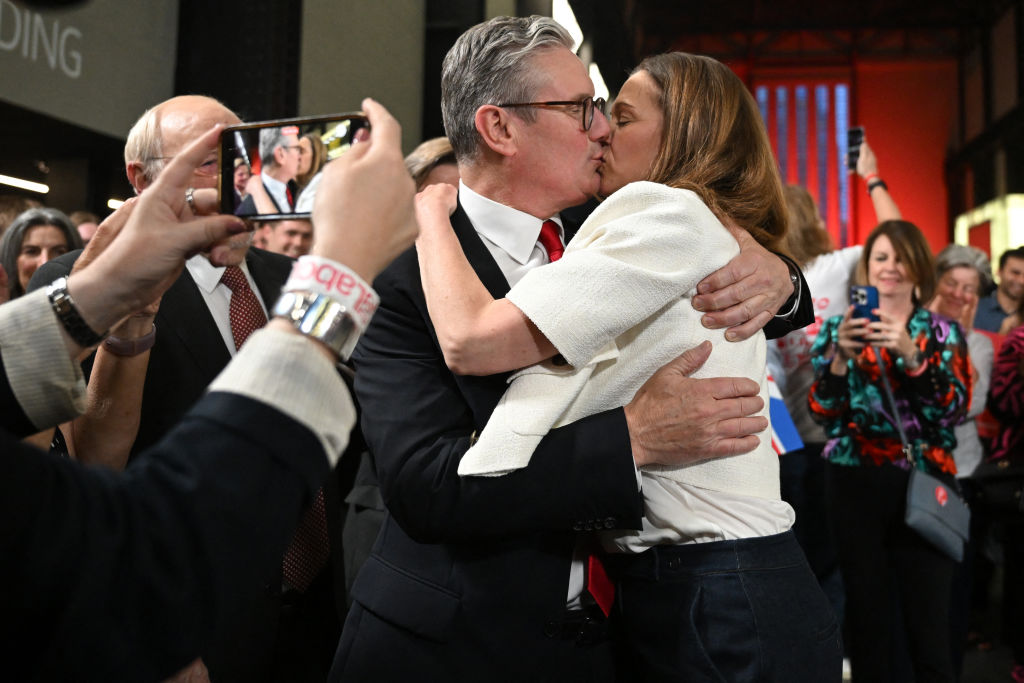The changing nature of political power was neatly demonstrated in Westminster yesterday. In the House of Lords, members debated Labour’s plans to purge parliament of its hereditary peers. Yet down the corridor in the Commons, that same principle seems alive and well. Ten Labour MPs are descended from former members, including scions of the Benn, Kinnock and Chamberlain families. The trend is certainly a cross-party one: a tenth of all Conservative MPs have had family members serve as Honourable Members. They include Victoria Atkins, Andrew Mitchell, Jerome Mayhew and Bernard Jenkin, whose fathers served as ministers under Mrs Thatcher.
But the shift between the last parliament and this is the number of ministers whose spouses are directly involved in politics themselves. The Sun has helpfully done a guide which reports that ‘an unprecedented 28 ministers are related to each other, married to other Labour politicians or have their partner also on the public purse.’ It would be a stretch to claim that nepotism is a uniquely Starmer-era invention: there is no sign of him anointing his nephew as successor (like Salisbury) or giving ministerial posts to at least four family relations such as Macmillan. Yet there is clearly a trend of MPs having partners involved in the political sphere themselves.
‘Two heads are better than one’, argues one Labour aide
In Labour, the trend seems to be more pronounced. The most prominent example is perhaps Morgan McSweeney, the Downing Street chief of staff, whose wife Imogen Walker is Rachel Reeves’s aide. Wes Streeting’s fiancé Joe Dancey is now the party’s comms director. Spousal and familial relations mix neatly in the form of the Falconer family, whose patriarch, Charlie, was lord chancellor under Tony Blair. His son, Hamish, is now an MP and Foreign Office minister. One of the elder Falconer’s former advisers, Jake Richards, is another new MP. His sister is Amy Richards, the Home Secretary’s chief of staff – and Richards is married to another new MP, Gregor Poynton.
Within Labour, various reasons are offered for the tendency to ‘date within their ranks.’ One serial dater suggests the obvious: ‘We are political obsessives who love the Labour party. Why wouldn’t we take our work home with us?’ Another aide suggests a ‘more natural preference’ for those working in the public sector, rather than the ‘Tory-coded’ world of the City. Treasury ministers Rachel Reeves and James Murray are among those whose partners are listed as working for the civil service.
The days of the dutiful partner contenting themselves with the association raffle are certainly long gone. In part, this reflects the rise of dual-income households in the UK. But it shows too the increased professionalisation of politics, with various roles now offered in trade unions, think tanks and lobbying groups to sustain a 40-year career. Two TV dramas by Paula Milne neatly illustrate the shift. The 1995 prequel – The Politician’s Wife – portrays an MP’s partner as a placid, retiring wife. Its 2013 sequel – The Politician’s Husband – depicts husband and wife as equal political players.
Both fictitious couples ended up splitting apart: a testament to the pressures that politics can put on a relationship. Some within SW1 despise the notion of such pairings. Sue Gray was reported to have once said that she disliked ‘political couples’ – a remark that would put her at odds with ‘half the party’, says one MP. There is the obvious charge of cronyism too. In the wake of freebie-gate, Labour is particularly sensitive to anything close to resembling a conflict of interest.
Still, ‘two heads are better than one’, argues one Labour aide, who met their current partner through Westminster. They suggest that climbing the greasy pole of politics is made all the easier by having a partner there with you: ‘You share your contacts, your battles, your knowledge.’ In the tribal world of Labour politics, every ally helps. Judging by the current composition of the higher echelons of the party, it is a strategy that certainly seems to be working.
At the end of the latest Coffee House Shots, James Heale speaks to colleague – and possible political spouse – Isabel Hardman about how their roles have changed over the years:







Comments